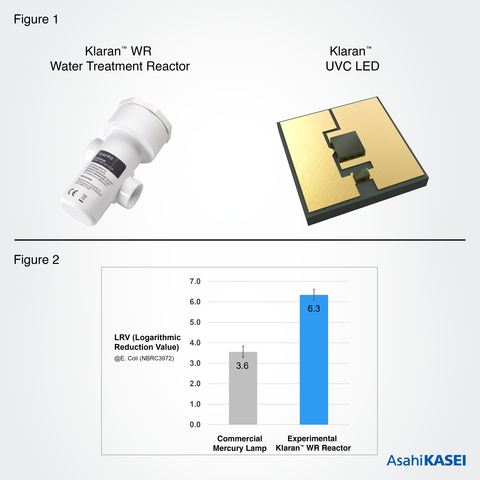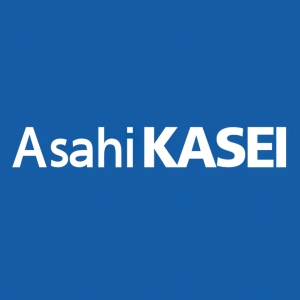Asahi Kasei demonstrates how Crystal IS UVC LED technology can be applied to achieve higher disinfection efficiency in water treatment than conventional mercury lamp systems
Asahi Kasei and Crystal IS have reported that their experimental Klaran™ WR UVC LED water treatment reactor outperformed traditional mercury lamp systems by over 75% in bacterial performance tests. The reactor operates at the same power level (6 W) while being lighter, smaller, and safer, contributing to a mercury-free environment. This advancement aligns with the stricter regulations following the Minamata Convention, promoting energy efficiency and safer water treatment. Asahi Kasei aims to replace mercury lamps with UVC LEDs in various applications.
- Klaran™ WR demonstrated over 75% higher performance than traditional mercury lamps in bacterial tests.
- The reactor is lighter and smaller, enhancing its practicality over conventional systems.
- Supports sustainability efforts by contributing to a mercury-free water treatment solution.
- None.
Insights
Analyzing...
— Mercury-free UVC disinfection —
-
Klaran™ WR experimental UVC LED water treatment reactor demonstrated over
75% higher performance than a traditional mercury lamp system in a bacterial performance test. - The Klaran™ WR reactor provides a lighter weight, smaller size, longer lasting and safer alternative to mercury lamps.
-
Asahi Kasei and Crystal IS advancements in UVC LED technology contribute to sustainability in society and are an important step towards actualizing a mercury-free world.

Klaran™ WR is an inline Point of Use (PoU) water treatment reactor (Figure 1, left) which combines Crystal IS’ UVC LEDs based on aluminum nitride (AlN) substrates (Figure 1, right), with Asahi Kasei’s R&D capability in the design and application of optics and fluid-dynamics. Figure 2 shows the disinfection performance of the mercury lamp system (left) and the experimental Klaran™ WR (right).
Klaran™ WR is an inline Point of Use (PoU) water treatment reactor (Figure 1, left) which combines Crystal IS’ UVC LEDs based on aluminum nitride (AlN) substrates (Figure 1, right), with Asahi Kasei’s R&D capability in the design and application of optics and fluid-dynamics.
While conventional UV water treatment systems have used mercury lamps as a light source, nations around the world adopted stricter regulations after the
While it is widely understood and accepted that UVC LED’s instant on-off capability offers a significant advantage and better alignment with actual consumer use than an “always on” mercury lamp system, a question remained whether an equivalent powered LED system could demonstrate equivalent disinfection performance as a low-pressure mercury lamp system. The experimental Klaran™ WR reactor was developed to demonstrate that UVC LEDs can achieve just this.
A standard Klaran™ WR was enhanced and modified to operate with the same power consumption level (6 W) as a comparable mercury lamp system. Both systems were tested using water at a flow rate of 8 liters per minute (2.1 gallons per minute), with a UV transmittance of
The experimental Klaran™ water treatment reactor and the mercury lamp system
Product |
Power consumption |
Weight |
Dimensions |
Experimental Klaran™ WR |
6 W |
125 g |
⌀51 mm × 115 mm |
Conventional mercury lamp system |
6 W |
400 g |
⌀52 mm × 265 mm |
It is Asahi Kasei’s belief that by replacing mercury lamps in water treatment systems with Crystal IS UVC LEDs, it will contribute to the realization of a mercury-free world and meet the global need for energy efficiency and safer water. In addition to water treatment system, Crystal IS will apply the various advantages of UVC LEDs to expand the application of UVC LEDs in surface and air disinfection.
About Crystal IS
Crystal
About
Asahi Kasei is also dedicated to sustainability initiatives and is contributing to reaching a carbon neutral society by 2050. To learn more, visit https://www.asahi-kasei.com/sustainability/.
View source version on businesswire.com: https://www.businesswire.com/news/home/20221005005004/en/
Company Contact
E-mail: AKA-info@ak-america.com
E-mail: marketing@cisuvc.com
Company Contact Europe:
Fringsstrasse 17, 40221 Düsseldorf
Tel: +49 (0) 211-3399-2058
E-mail: sebastian.schmidt@asahi-kasei.eu
Source: Asahi Kasei







